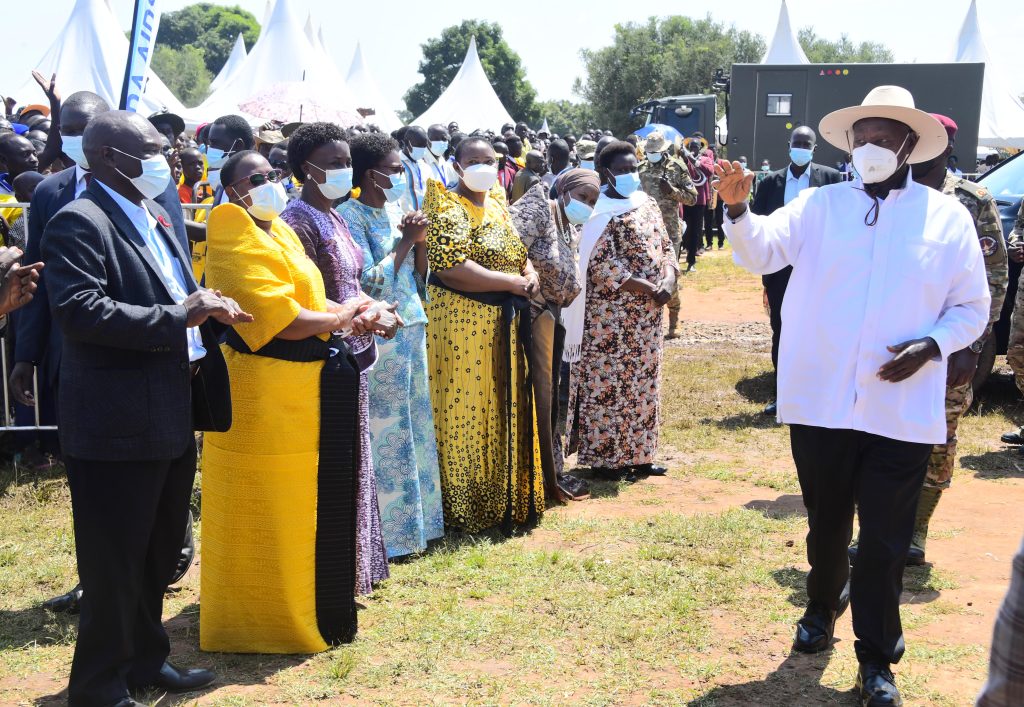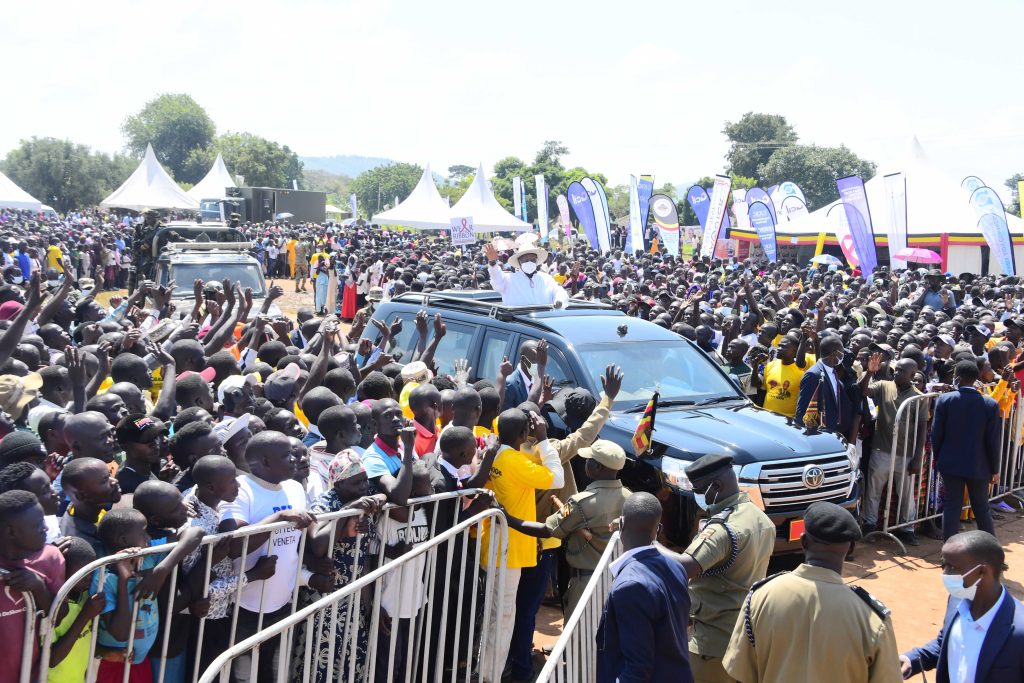President Yoweri Kaguta Museveni has reiterated his call to Ugandans to prevent themselves from getting infected with HIV/AIDS.

According to the President, HIV/AIDS limits the capacity of the infected person.
“There are certain things that you cannot do when you are infected. Like in the army, we discovered that when somebody over-exerts himself with the virus, it can cause a problem. Therefore, don’t say let me get infected since the drugs are available and I will live a normal life. You will not die but you will have deducted on your capacity,” he said.
The President made the remarks today during the World AIDS Day commemoration held at Bukungu Primary School, Bukungu Town Council, Buyende District.
The commemoration ran under the theme: “Accelerating Interventions to End HIV/AIDS by 2030”.




